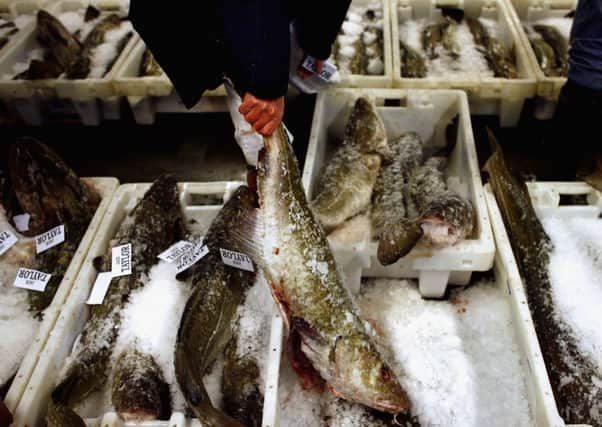Mike Park: Brexit will bring a net gain for our island nation


That’s right – our island nation, with its famous nautical heritage, willingly surrenders £400 million of one of its most abundant natural marine resources to other European Union countries each year.
Why? As a member of the EU, the UK has been obliged under the Common Fisheries Policy to grant access to its rich fishing grounds to foreign fishing fleets.
Advertisement
Hide AdAdvertisement
Hide AdAccording to a comprehensive new study carried out by the NAFC Marine Centre in Shetland, over the three years from 2012 to 2014, EU fishing boats (including UK boats) caught just over 1.1 million tonnes of fish and shellfish worth £1 billion within UK fishing waters, known as the Exclusive Economic Zone (EEZ), each year.
Non-UK boats landed around 650,000 tonnes of this, worth more than £400 million.
This included 99,000 tonnes (£179m) of demersal fish, 424,000 tonnes (£183m) of pelagic fish, 16,000 tonnes (£34m) of shellfish and 111,000 tonnes of industrial fish (£11m).
That’s almost half of the demersal fish, almost two-thirds of the pelagic fish and almost all of the industrial fish.
By contrast, UK fishing boats landed just 90,000 tonnes of fish and shellfish, worth £103m, from the waters of other EU countries.
In all, non-UK EU fishing boats caught seven times more fish in the UK’s fishing waters than UK boats did in the waters of other EU countries.
The consequences of this great EU fisheries giveaway are clear – coastal communities have at best been denied the opportunity to flourish and at worst declined markedly.
Let’s be clear: giving access to UK waters to overseas vessels is not inherently a bad thing. There are times when it makes perfect sense to have mutually beneficial access arrangements with other countries.
Advertisement
Hide AdAdvertisement
Hide AdFor example, this country might have abundant stocks of a species of fish that is unpopular in the local market but highly sought after in a neighbouring country, and vice versa.
The problem is rather that we have had no control over these arrangements. Officially, they were agreed in negotiations between member states, but in reality they were pre-determined in the air-conditioned corridors and meeting rooms of the Brussels bureaucracy. And as the figures above show, the balance has been all wrong: the EU nations have benefited from our stocks much more than we have from theirs.
Now, as the UK sets out to negotiate its exit from the EU, we have an opportunity to re-assert control as well as introduce fit-for-purpose fisheries management.
There has been a great deal of talk in the media and elsewhere about the potentially negative economic consequences of Brexit, but here is a perfect example of where it can bring positive results.
For this to happen, those politicians and civil servants charged with handling the negotiations need to make a strong case for the fishing industry rather than repeat history and trade it away for other less tangible benefits.
Then we might restore this country’s rightful place as a major fishing nation.
Mike Park is chief executive of the Scottish White Fish Producers’ Association